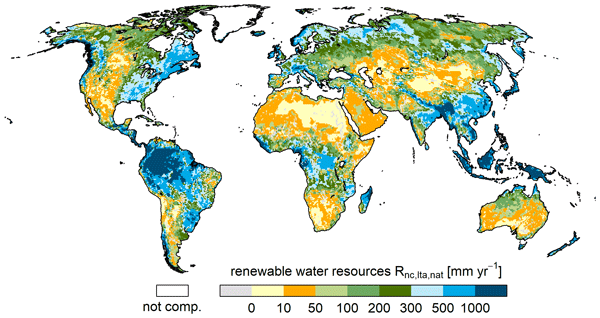
Proper management of water resources is a global challenge due to increasing water scarcity in many regions of the world.. In an effort to address this critical issue, some countries like Canada, China, United States and the members of the European Union have sought to create supranational rules for the management of water reserves.
The creation of supranational rules is understood as a strategy to face the question insofar as it allows:
- International cooperation: Water is a transboundary resource, and many river basins span multiple countries. The creation of supranational rules aims to promote cooperation between nations to face common challenges in the management of water reserves, like scarcity, pollution and equitable distribution of water resources.
- conflict prevention: Competition for water resources can lead to tensions between countries. The creation of supranational rules seeks to avoid conflicts, establishing clear guidelines and dispute resolution mechanisms for the shared management of river basins.
- Efficiency and sustainability: Coordinated management of water supplies can lead to more efficient and sustainable use of water resources. Through supranational rules, countries can implement conservation practices, integrated monitoring and planning, to ensure the availability of water for future generations.
These countries have supported the creation of international organizations for water management, such as the Food and Agriculture Organization of the United Nations (FAO) and the United Nations Environment Program (UNEP). They have also participated in international agreements on water management, such as the United Nations Convention on the United Nations Rights to Water and Sanitation (UN Water Convention) and the Agenda 2030 for sustainable development.
The efforts of these countries have been important for the development of a global framework for the management of water supplies.. However, there are still many challenges to be overcome, as the lack of political will of the countries, the lack of funding and the lack of data and information on the status of water reserves.
Not removing any importance from the issue of preserving water reserves, we cannot forget that the establishment of supranational rules must be done with great care and balance, under the risk of creating rules that are later used as a form of domain. Some of the ways used by more powerful countries to control the international system are:
- economic hegemony: economic powers have greater influence on international financial institutions, such as the International Monetary Fund (IMF) and the World Bank. They can impose economic and political conditions on weaker countries in exchange for financial assistance.. These conditions may include austerity measures, privatizations and market opening, favoring the interests of the powers and undermining the economic sovereignty of the weaker countries.
- diplomatic pressure: more powerful countries can use their diplomatic influence to exert pressure on weaker countries. This may involve threats of economic sanctions., Diplomatic isolation and political retaliation. Through international alliances and coalitions, powers seek to gain global support to impose their wills.
- military intervention: in some cases, Powers use military force to impose their will on weaker countries. This can occur through direct interventions, such as invasions or military occupations, or through support for rebel and insurgent groups. Powers often justify their interventions based on international rules, as the responsibility to protect (R2P) or the defense of human rights, although there are controversies about the legitimacy of these actions.
- Exploitation of legal loopholes: countries can take advantage of loopholes in international law or selectively interpret it to justify their actions. This may involve broad interpretations of international law., seeking to justify military interventions or unilateral actions on behalf of national security or strategic interests.
That's why we must look not only at the problem, but also the way the solution is constructed.
